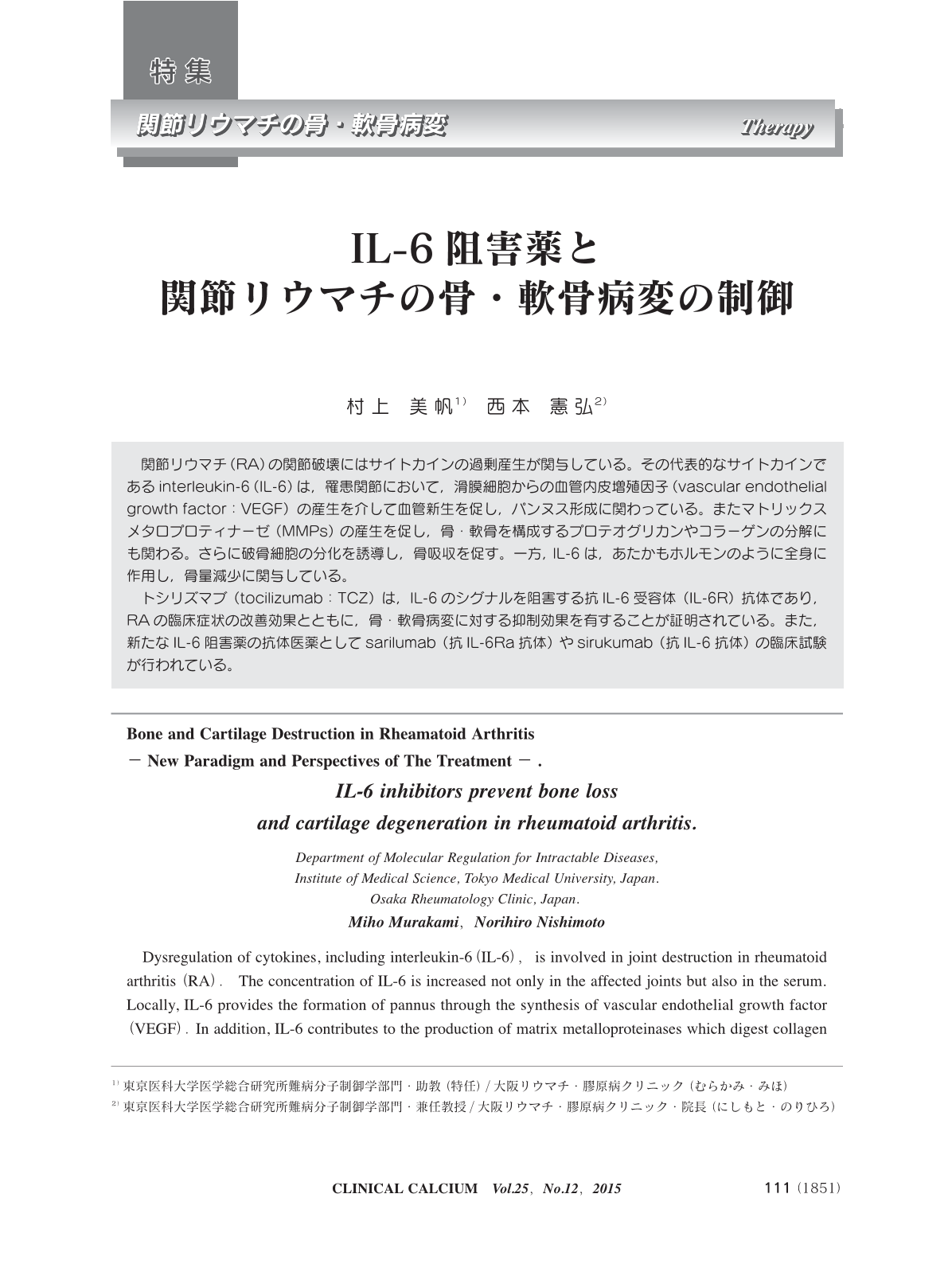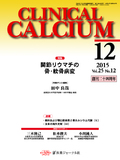Japanese
English
- 有料閲覧
- Abstract 文献概要
- 1ページ目 Look Inside
- 参考文献 Reference
関節リウマチ(RA)の関節破壊にはサイトカインの過剰産生が関与している。その代表的なサイトカインであるinterleukin-6(IL-6)は,罹患関節において,滑膜細胞からの血管内皮増殖因子(vascular endothelial growth factor:VEGF)の産生を介して血管新生を促し,パンヌス形成に関わっている。またマトリックスメタロプロティナーゼ(MMPs)の産生を促し,骨・軟骨を構成するプロテオグリカンやコラーゲンの分解にも関わる。さらに破骨細胞の分化を誘導し,骨吸収を促す。一方,IL-6は,あたかもホルモンのように全身に作用し,骨量減少に関与している。 トシリズマブ(tocilizumab:TCZ)は,IL-6のシグナルを阻害する抗IL-6受容体(IL-6R)抗体であり,RAの臨床症状の改善効果とともに,骨・軟骨病変に対する抑制効果を有することが証明されている。また,新たなIL-6阻害薬の抗体医薬としてsarilumab(抗IL-6Ra抗体)やsirukumab(抗IL-6抗体)の臨床試験が行われている。
Dysregulation of cytokines, including interleukin-6(IL-6), is involved in joint destruction in rheumatoid arthritis(RA). The concentration of IL-6 is increased not only in the affected joints but also in the serum. Locally, IL-6 provides the formation of pannus through the synthesis of vascular endothelial growth factor (VEGF). In addition, IL-6 contributes to the production of matrix metalloproteinases which digest collagen and proteoglycan of cartilage. Furthermore, IL-6 induces the differentiation and activation of osteoclasts. IL-6 can be delivered systemically to a similar extent as hormones, may induce systemic osteoporosis. Tocilizumab(TCZ), a humanized anti-IL-6 receptor antibody, inhibiting IL-6 signaling, has provided beneficial outcomes, such as achievement of clinical remission, protective effects against bone and cartilage destruction. Because of the beneficial outcomes, new drugs inhibiting IL-6 signaling are developed, and the clinical trials are ongoing.



